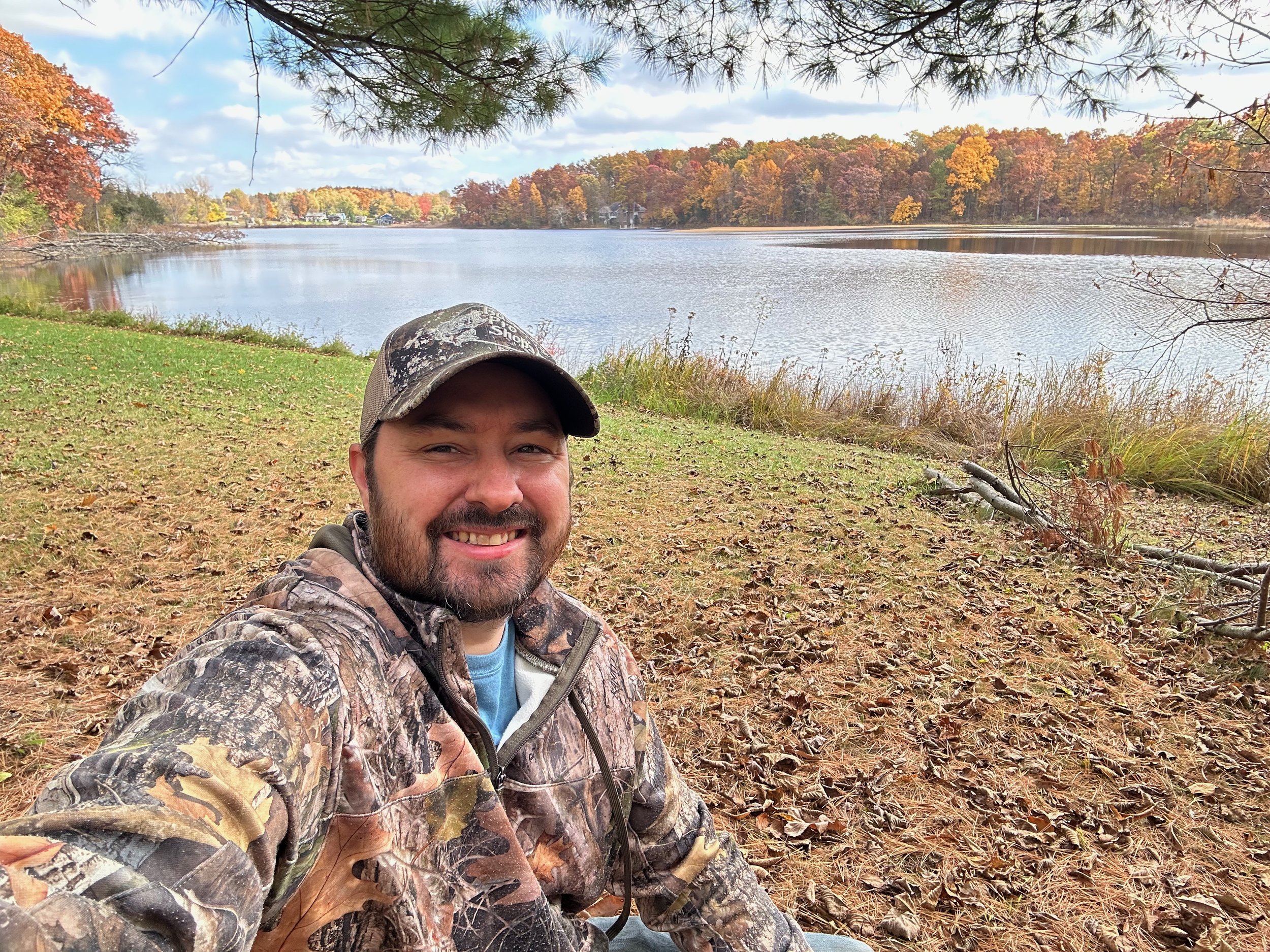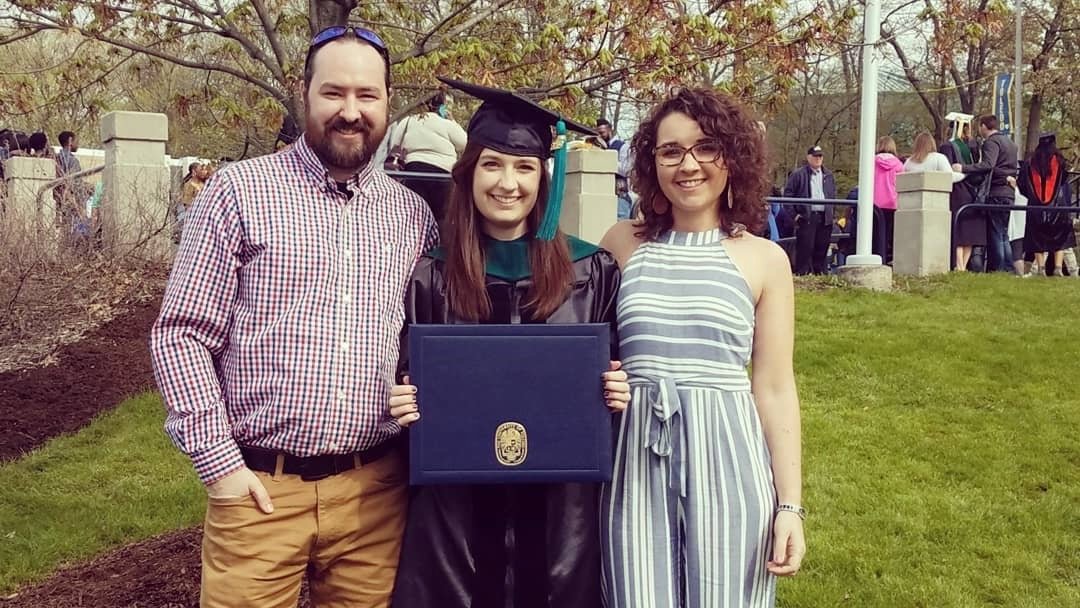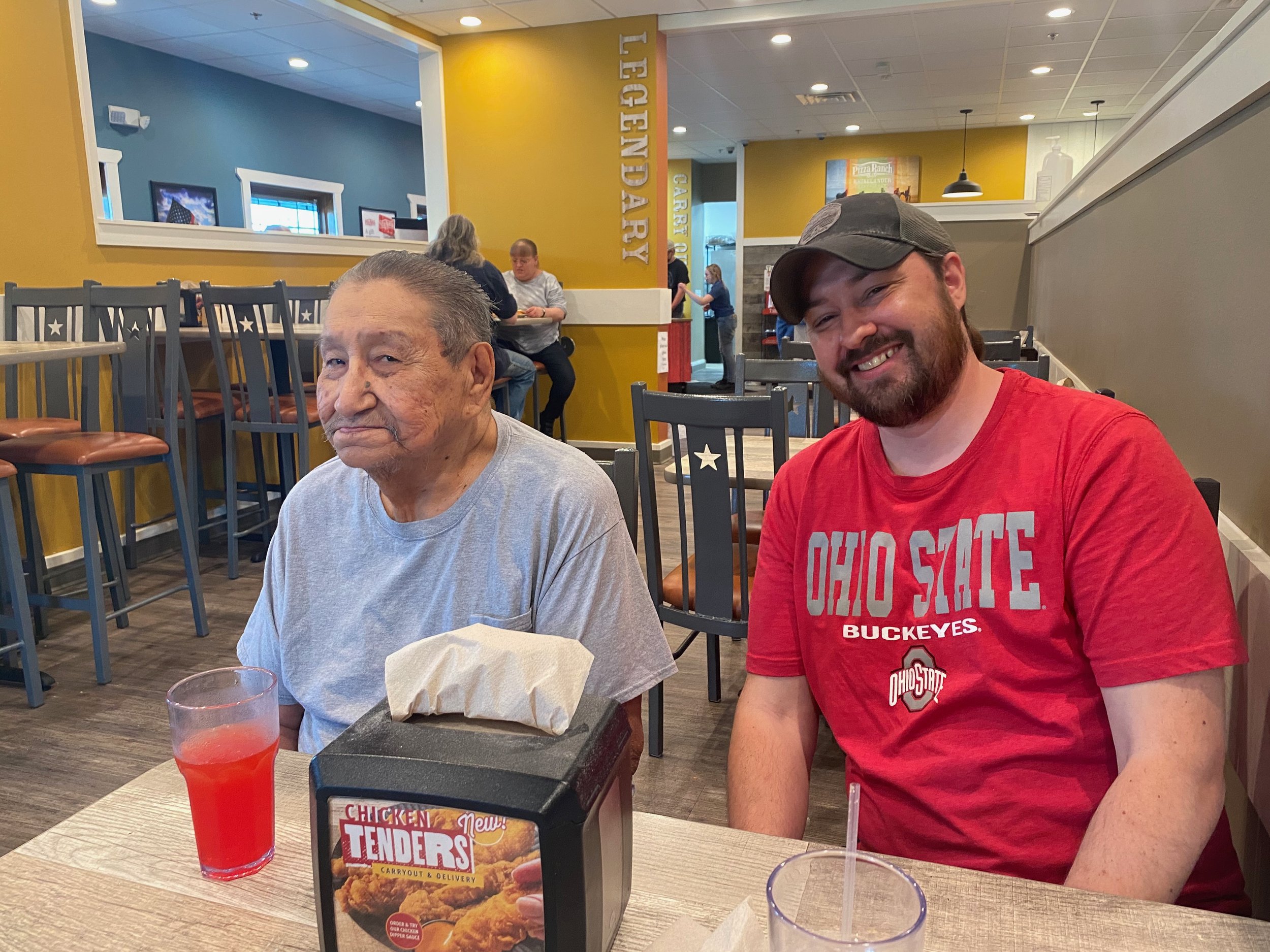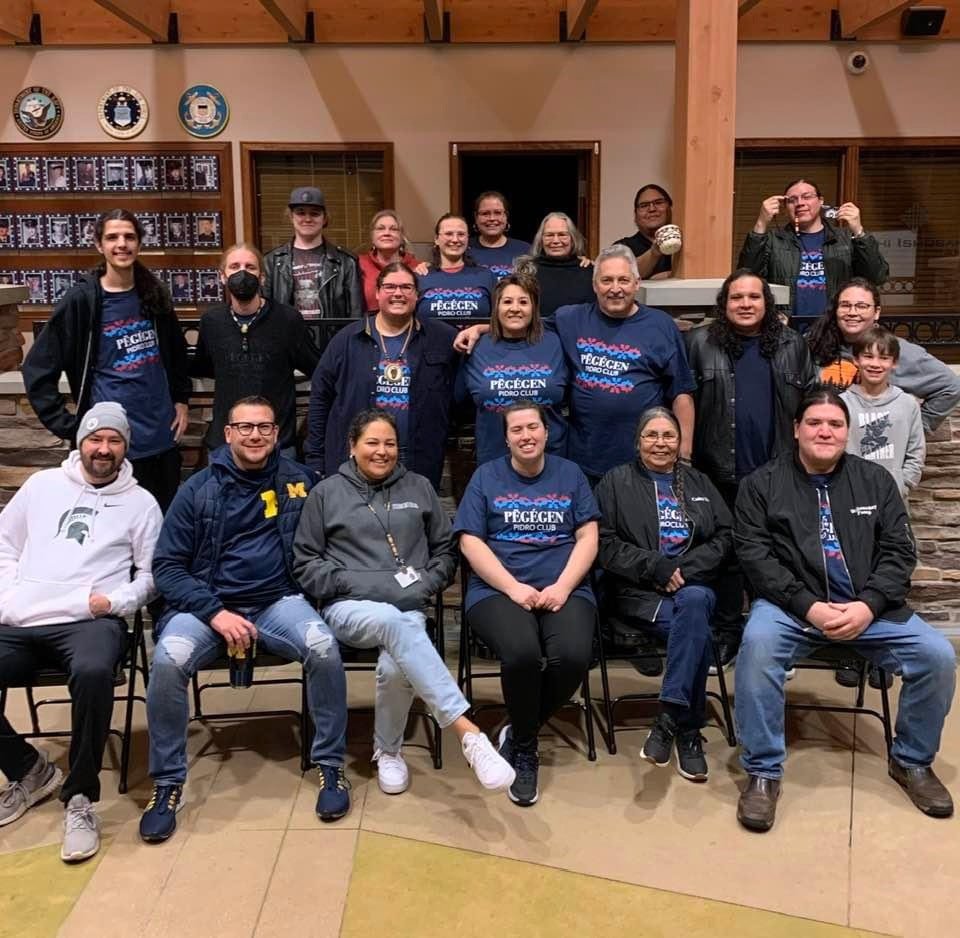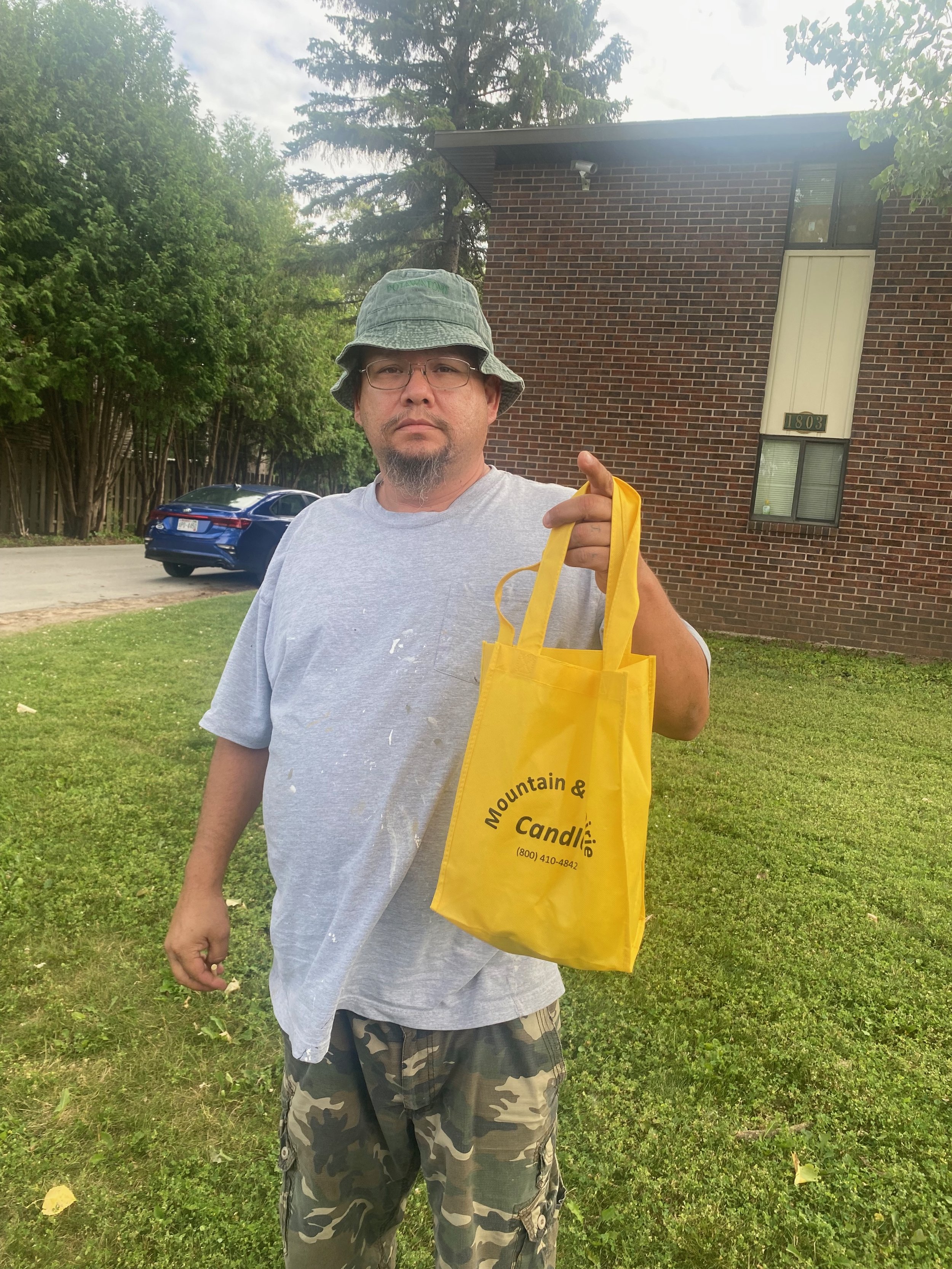
About Me
bozho thayék!
I was born in 1984 to Bob and Dana Livingston in New Britain, Connecticut, however our family moved back to the Toledo, Ohio area after I was two months old. Our family arrived in the Toledo, Ohio area after my great grandfather, Ruben McEvers, and several of his siblings moved from Shawnee, Oklahoma in the late 1920’s/early 1930’s in search of work. My father was a hard-working tool and die maker who passed away suddenly in February of 2020 at 59. My mother is a recently retired radiology technologist, and I have two sisters, Staci and Jenna, that I am very close with. Staci lives in Tampa with her husband, Brett, and their two kids Mila and Wesley. Jenna lives with her husband in Grand Rapids, Michigan.
I grew up always knowing I was Potawatomi, however like many CPN citizens who live away from Oklahoma, I was not raised around our language, traditions, or any community outside of family. My grandmother and great aunt, and their cousins, would attend the CPN intertribal from time to time, but it wasn’t until my 20’s that I began really reconnecting. In 2014, I began learning our language using online resources provided by our language department. However, my language journey truly flourished when I met Thomas Loftis, who opened my eyes to the depth and beauty of our language, and the importance it holds for our identity as Potawatomi. Without our language, we cease to be Potawatomi, and I will forever be a student and an advocate for our language in our community. Through language, I have gone on to build an amazing network of friendships and mentors in our community across all Potawatomi bands.
I have two amazing kids, Caitlyn and Chase, who are always at the forefront of everything I do. Caitlyn is 14 years old, starting high school, and loves playing year round volleyball. Chase is 21 years old and recently finished school to become a certified Aircraft Maintenance Technician.
I’m currently a Senior Software Engineering Manager for a global telecommunications company, and I’ve had the honor to lead and work beside an amazing group of peers throughout my career. My leadership style can be best summed up in the book by Simon Sinek, “Leaders Eat Last”, and I’m a firm believer that leaders are never the smartest people in the room. They never do all the work themselves. Good leaders surround themselves with people smarter and more capable than themselves and give them the freedom to execute, and it’s a leaders job to provide the vision and to remove roadblocks to success.
Family History
CPN Family Name: Anderson / Hardin
Anderson / Harding Family Resources
Much of our family history is intertwined with with that of many other Citizen Potawatomi Nation citizens, with familiar names such as LaFramboise, Bourbonnais, Ouilmette, Hardin, and Anderson. I am descended from John Anderson and Elizabeth Hardin, one of first seven families to have arrived in Indian Territory, through their daughter Julia Anderson McEvers.
After arriving in Indian Territory, John, alongside his brother Pete and his brother-in-law Davis Hardin, were very active Citizen Potawatomi leaders. Both John and Pete served on some of the first Business Committees in the late 1800’s, and Davis Harden served as a tribal secretary having been fluent in Potawatomi and Kickapoo.
My great great grandmother, Julia Anderson McEvers, moved back to Kansas with her husband William McEvers, however after his death they moved back to the Shawnee area. Times were hard, and Julia was often homeless while her children lived amongst other families in the area. Many of my great grandfather’s siblings went to boarding schools, however it’s not known whether or not Ruben ever did. In the late 1920’s/early 1930’s, he and several of his siblings moved to Sylvania, Ohio where Ruben took a job on an oil pipeline, and our family has been in the Sylvania/Toledo, Ohio area since.
Like my ancestors, I feel called to serve in a leadership role within the Citizen Potawatomi Nation.
Language
“If culture was a house, then language was the key to the front door, to all the rooms inside.” — Khaled Hosseini, Afghan-born American novelist and physician
”Language is one of the most important parts of any culture. It is the way by which people communicate with one another, build relationships, and create a sense of community.”
I couldn’t possibly have a page about me without a dedicated space to talk about our Potawatomi language and the importance it plays in my life. I started my language journey around 2014, studying the language on and off from online resources provided by Bémwétekben (Jim Thunder), the Kansas BWAKA Dictionary, and online resources provided by Justin Neely and the Citizen Potawatomi Nation. At that time in my life, I was prioritizing a busy career, I was recovering from a failed marriage from several years back, and I would often go out drinking and partying with friends from work. After 2 years of on and off learning, I thought I had gotten pretty good… that is until I met my good friend Thomas Loftis. Thomas opened my eyes to a previously unknown world of language, one with deeper meanings, one where words and meanings provided a window into the worldview of our ancestors. He was a tough mentor to learn from, primarily because I came from a world much different than his and I had to learn how to view the world from a different perspective. Through these talks about language, life, traditions, respect, and prayer, I decided to quit drinking sometime in 2017. I found myself to be calmer, more present, and although I was always very active in my kids lives, time seemed to slow down as I found myself truly appreciating every moment and memory I made with them. I largely withdrew from old friend groups and built new, healthy relationships in our community. I will forever be grateful for my relationship with Thomas, as he, and the language, literally changed my life for the better.
Through my work and time studying our language, I built friendships with Lindsay Jones Marean, Gloria Gutierrez, Robert (Dokmëgizhêk) Lewis, Carla Collins, and Kyle Malott, spent time with elders Bémwétekben and Gawtagizhêkben, and met and built relationships with many others in our community that I’ve come to deeply appreciate.
I tell this story because for Citizen Potawatomi Nation, there are many who are disconnected. For those newly reconnecting, I will always say this: learn the language. As the quote above states, language is the key to the front door, to all the rooms inside, and in those rooms are a community of people living authentic Potawatomi lives who are willing to share the real aspects of being Potawatomi, and that’s something you’ll never find on social media, on YouTube, Google, or in books.

